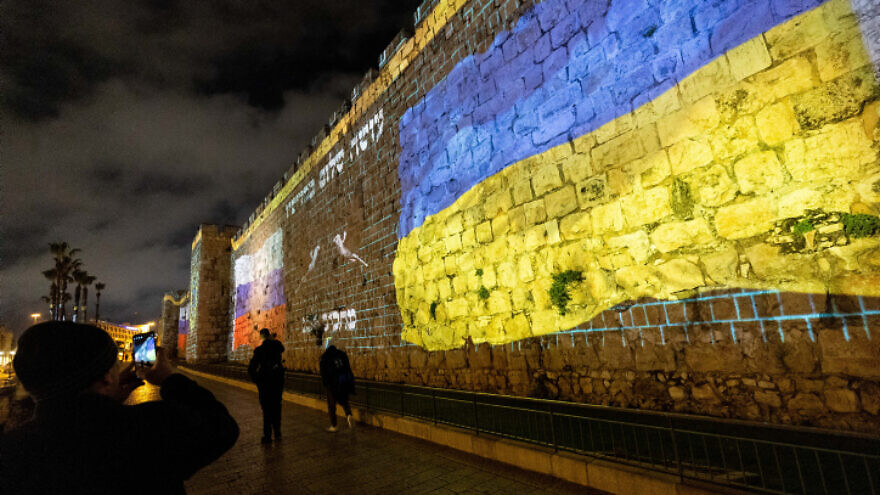Domestic critics of Israeli Prime Minister Naftali Bennett said he has lost focus on internal political considerations while taking on more international concerns, such as trying to intervene diplomatically in Russia’s nearly seven-week war with Ukraine.
“Our prime minister decided at one point to try his hand in mediation. He was asked by some international leaders, especially senior European leaders, to intervene and see if there is a potential diplomatic outcome, which is why he engaged both parties,” Israeli Ambassador to the United States Michael Herzog told The Washington Post in an interview on Monday.
He stated that to his understanding, Bennett was no longer in touch with Russian President Vladimir Putin and is no longer leading the effort to mediate, as he was a few weeks ago.
Freed from his role as globetrotting mediator, the prime minister instead has been dealing with an increasingly complex set of problems at home, including a spate of deadly Arab terror attacks, both from Israeli Arabs and Palestinian Arabs in Israel illegally. Herzog brushed aside the notion that the attacks have been coordinated, even as three of the terrorists involved had known ties and loyalties to the Islamic State.
“It is regrettable that the Palestinian leadership throws fuel on the fire. We didn’t start these attacks,” stated Herzog. “They were perpetrated by people who went into the heart of Israel and killed innocent civilians, and I would expect the Palestinian leadership to issue stronger condemnations and not just accuse our forces.”
Still, Herzog said that the Islamic State’s ties to the current wave of terror in Israel shouldn’t be overlooked, even if ISIS involvement is on a purely inspirational plane. He pointed to the height of the global conflict with ISIS a few years ago, when only a few Israeli or P.A. citizens went to join the terrorist group.
“There was no great impact. But still, I would say they inspire some people to go out and try and kill civilians. That was the case here, and we should be on the alert.”

‘It’s time for fresh thinking’
Herzog, who for decades served as a member of Israel’s peace negotiations team, was also queried as to why Israel has been able to reach peace and normalization agreements with a number of Arab states while a deal with the Palestinians has remained elusive.
“It’s not like we haven’t tried. We tried for many, many years,” he acknowledged. “There were all sorts of offers on the table. And we failed, not for lack of trying.”
“I think in order to bring about such a deal, it would require a certain set of conditions, including leadership on both sides who can communicate and take decisions like we had between Israel and Egypt or between Israel and Jordan—where you have leadership that could take such measures, along with an effective third-party mediation marginalizing the radicals and extremists who work against peace,” explained Herzog.
“I would say that it’s time for fresh thinking about what went wrong,” he added, “and I do believe that involving some other actors like the Arabs would help us.”


























